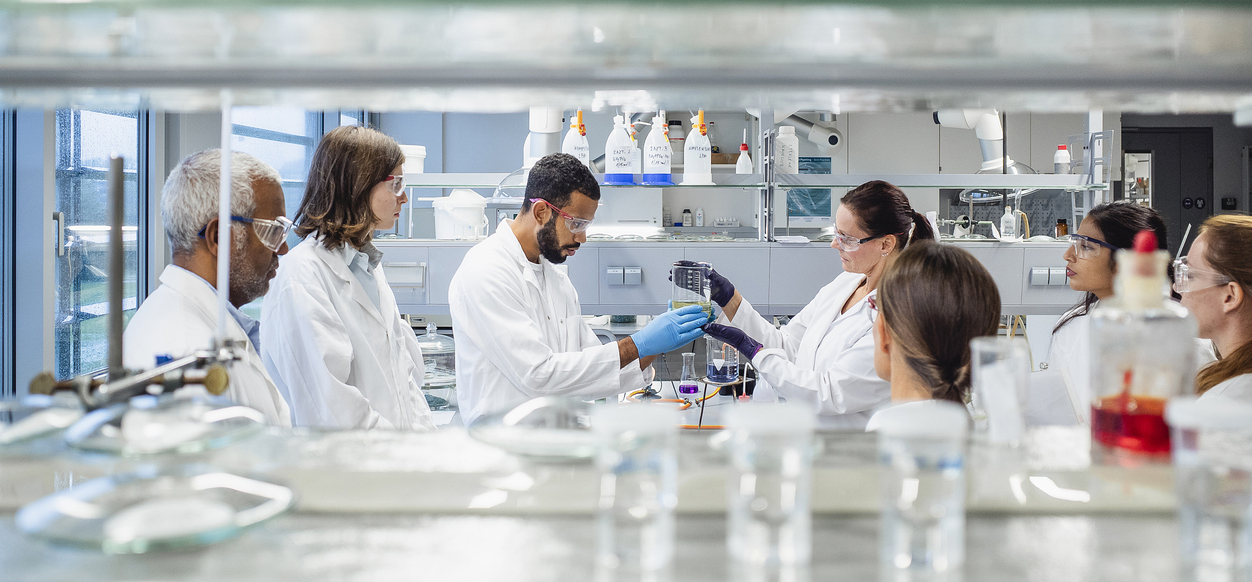
Description
The Outreach Programs and Science Career Intentions (OPSCI) project, an NSF-funded quasi-experimental retrospective study of 15,847 first-year students at 27 colleges and universities, examined how common STEM outreach activities shape students’ interest in STEM career pathways. The findings offer educators, practitioners and policymakers guidance to create stronger, more effective pathways that help students explore and pursue STEM careers.
About
Nurturing interest in science, technology, engineering and mathematics (STEM) careers is a national priority. A robust STEM workforce is essential to national security, economic competitiveness and sustaining the United States’ role as a global leader in innovation and problem-solving. To advance efforts that promote student interest in STEM pathways, researchers at Harvard University, in collaboration with USC Associate Research Professor Joseph Kitchen, conducted a multi-year, retrospective cohort study examining how common college outreach initiatives influence students’ STEM career aspirations.
As part of the Outreach Programs and Science Career Intentions (OPSCI) project — funded by the National Science Foundation — researchers surveyed 15,847 first-year students across 27 colleges and universities nationwide. Using rigorous quasi-experimental methods, the study assessed the impact of widely-implemented outreach strategies such as STEM clubs, career days, campus visits, summer programs, bridge programs and high school visits from STEM college students and faculty. The research also explored how student characteristics like sex, parent education, tutoring and academic achievement shaped the effects of these initiatives on STEM career aspirations.
This project provides one of the most robust evidence bases to date on the effectiveness of common STEM college-outreach activities. Its findings support practitioners, policymakers and other stakeholders in designing programs that spark and sustain student interest in STEM careers during the critical transition from secondary to postsecondary education. The OPSCI study has produced numerous widely cited research articles and presentations that continue to inform the field.
Selected Articles and Presentations from OPSCI (and links where available):
Selected Publications:
Kitchen, J.A., Williams, M., Bravo, S., Sonnert, G., & Sadler, P. (2025). Equity oriented STEM career support: The role of family messages, encouragement, and assets. Journal of Diversity in Higher Education. Advance online publication. Https://doi.org/10.1037/dhe0000680
Kitchen, J.A., Williams, M., Sonnert, G., & Sadler, P. (2024). A quasi-experimental study of the impact of college-run science, technology, engineering, and mathematics (STEM) career days on American students’ STEM career aspirations. International Journal of Science Education,46(2), 109-130. https://www.tandfonline.com/doi/full/10.1080/09500693.2023.2220071
Kitchen J.A., Chen, C., Sonnert, G., & Sadler, P. (2022). The impact of participating in college run STEM clubs and programs on students’ STEM career aspirations. Teachers College Record, 124(2), 117-142. https://journals.sagepub.com/doi/full/10.1177/01614681221086445
Kitchen, J.A., Sonnert, G., & Sadler, P. (2020). Campus visits: The impact of a college outreach strategy on student science, technology, engineering, and mathematics (STEM) aspirations. Journal of Student Affairs Research and Practice, 57(3), 266-281. https://www.tandfonline.com/doi/full/10.1080/19496591.2019.1653312
Kitchen, J.A., Sadler, P., & Sonnert, G. (2018). The impact of summer bridge programs on college students’ STEM career aspirations. Journal of College Student Development, 59(6), 698-715. https://doi.org/10.1353/csd.2018.0066
Kitchen, J.A., Sonnert, G., & Sadler, P. (2018). The impact of college- and university-run high school summer programs on students’ end of high school STEM career aspirations. Science Education, 102(3), 529-547. https://doi.org/10.1002/sce.21332
Selected Presentations:
Kitchen, J.A. (2023, September). An ecosystem of STEM career path support. Presented at the Science Education Department Seminar Series, Harvard-Smithsonian, Cambridge, MA.
Kitchen, J.A., Sonnert, G., & Sadler, P. (2019, April). STEM outreach programs as a “third space” of engagement: Potent solutions to stagnated STEM interest. Paper presented at the annual meeting of the American Educational Research Association (AERA), Toronto, Canada.
Kitchen, J.A. (2016, April). Broadening participation in STEM: The impact of college summer bridge programs on student STEM aspirations. Presented at the Science Education Department Seminar, Harvard-Smithsonian Center for Astrophysics, Cambridge, MA.
Kitchen, J.A. (2015, November). The impact of summer bridge programs on college students’ STEM career aspirations. Session presented at Harvard-Smithsonian Center for Astrophysics Postdoctoral Symposium, Cambridge, MA.
Funder

National Science Foundation‘s mission is to advance the progress of science, a mission accomplished by funding proposals for research and education made by scientists, engineers, and educators from across the country. This project is funded from the NSF’s Division of Undergraduate Education (DUE), under Grant No. NSF 1161052.







